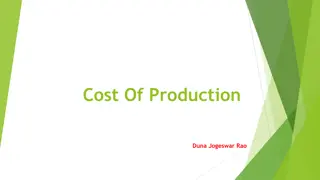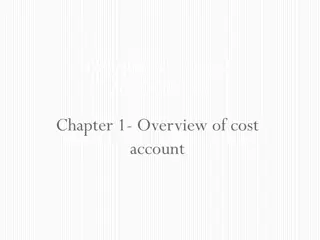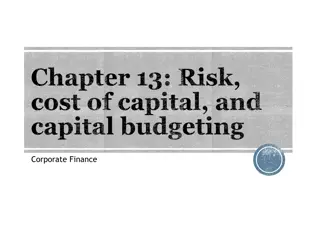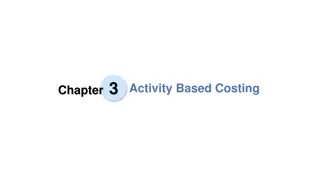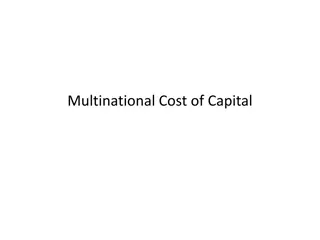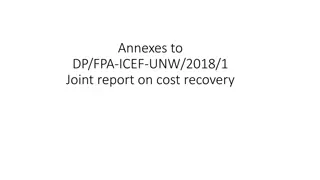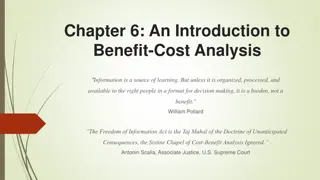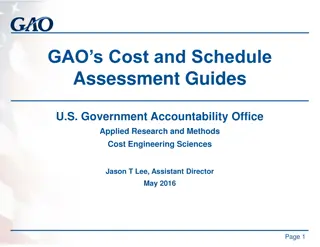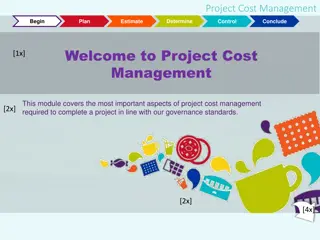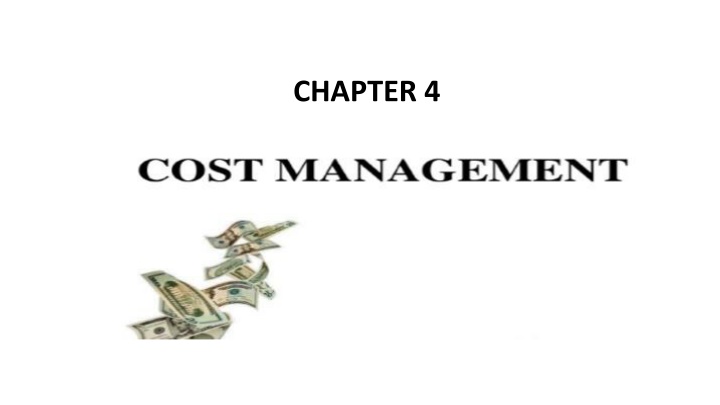
Effective Cost Management in Project Development
Ensuring cost-effective project development is essential for delivering value for money to clients. This involves meticulous budgeting, consideration of various factors like legal fees, site investigation, insurance, and contingency planning. Learn the key aspects of cost management for successful project outcomes.
Download Presentation

Please find below an Image/Link to download the presentation.
The content on the website is provided AS IS for your information and personal use only. It may not be sold, licensed, or shared on other websites without obtaining consent from the author. If you encounter any issues during the download, it is possible that the publisher has removed the file from their server.
You are allowed to download the files provided on this website for personal or commercial use, subject to the condition that they are used lawfully. All files are the property of their respective owners.
The content on the website is provided AS IS for your information and personal use only. It may not be sold, licensed, or shared on other websites without obtaining consent from the author.
E N D
Presentation Transcript
Cost management is the process, which is necessary to ensure that the planned development of a design and procurement of a project is such that the price for its construction provides value for money (VFM) and is within the limits anticipated by the client. Construction is a major capital expenditure, which clients do not commence until they are certain that there is a benefit. This benefit may be for society in the case of public projects, with justification based on a cost benefit analysis, or purely based on financial considerations in the case of private projects.
Most clients are working within tight pre-defined budgets, which are often part of a larger overall scheme. If the budget is exceeded or the quality not met the scheme could fail. Pre contract estimating sets the original budget forecasting the likely expenditure to the client. This budget should be used positively to ensure that the design stays within the scope of the original scheme
When developing an estimate the following factors need to be considered: Land acquisition including legal fees; Client s own organization costs allocated to the project (this obviously varies but can be as much as 10% of the overall project budget); Site investigation (frequently underrated and under-budgeted resulting in unnecessary extra costs and time could be as much as 1% of budget); Enabling works, decontamination;
Insurances (many major clients prefer to insure against the risks and take out a project insurance policy covering both themselves and the contractor may be up to 1% of the budget); Consultants fees including design (on large transportation and infrastructure projects this can be as much as 15 20% of the budget); Construction costs (typically account for between 70% and 80% of the project sum) (excluding land); Value added tax (VAT) (currently charged at 15%); Contingency and risks (covers for the unknown and may be between 20% and 25%) or if project of long duration the contingency factor could be double or triple these items; Financing and legal costs (financing costs can be substantial depending on financing method chosen and typical bank rate could be anything between 7% and 20%; lawyers are expensive anything up to 500 per hour and more).

